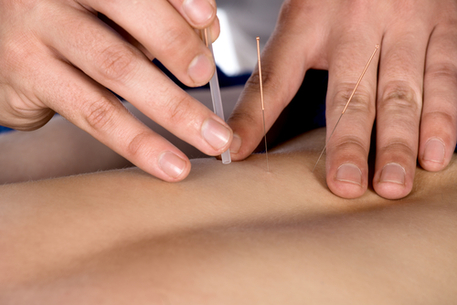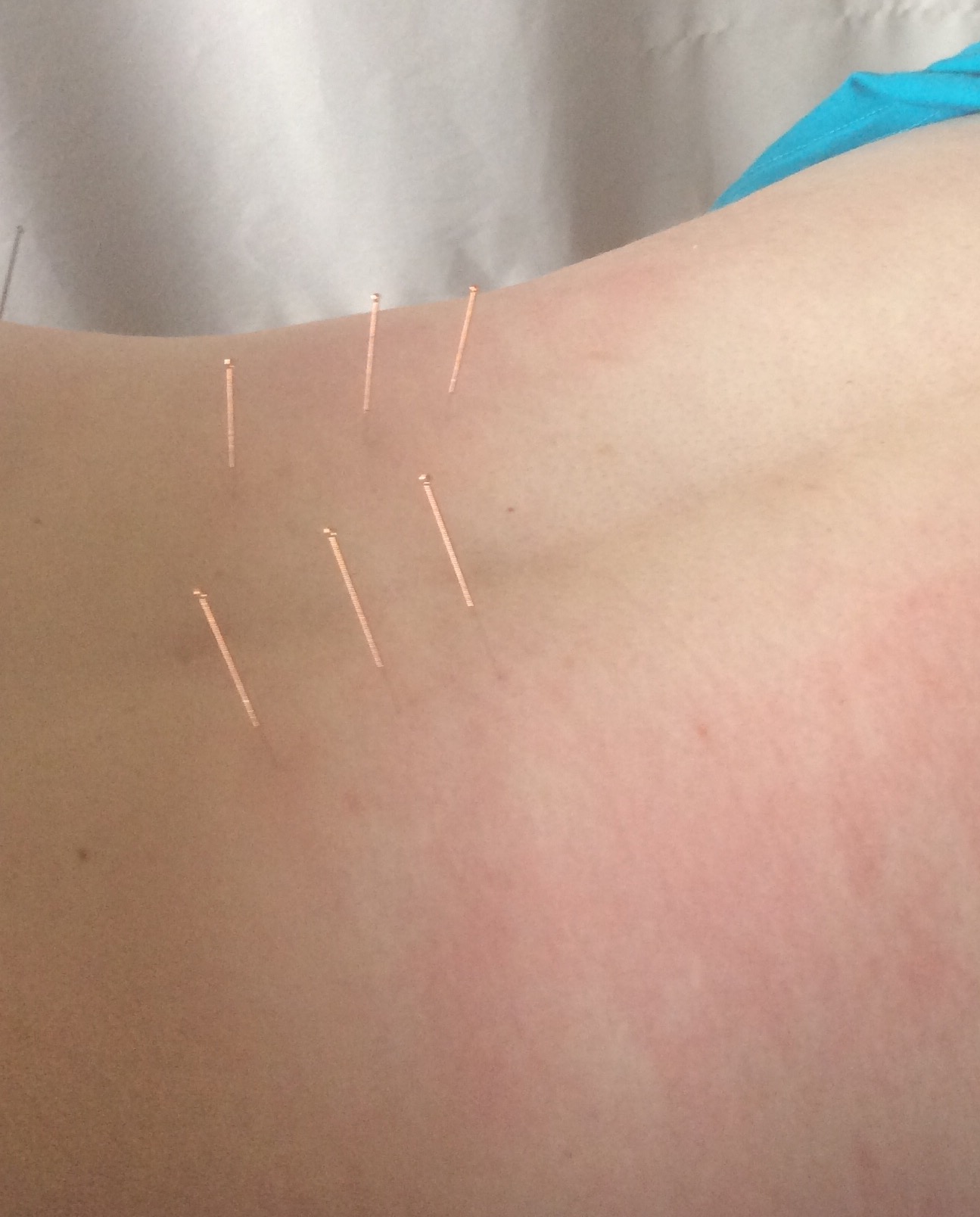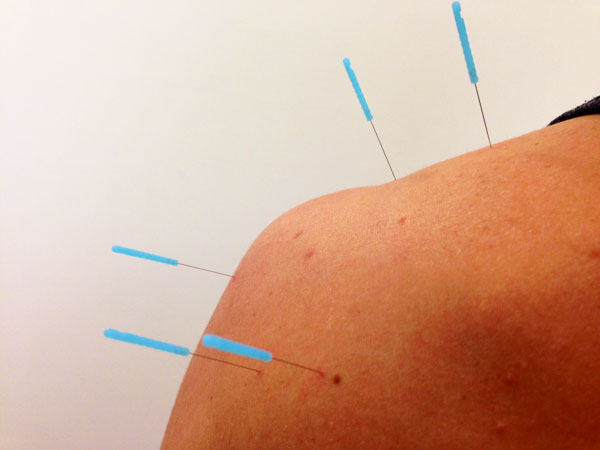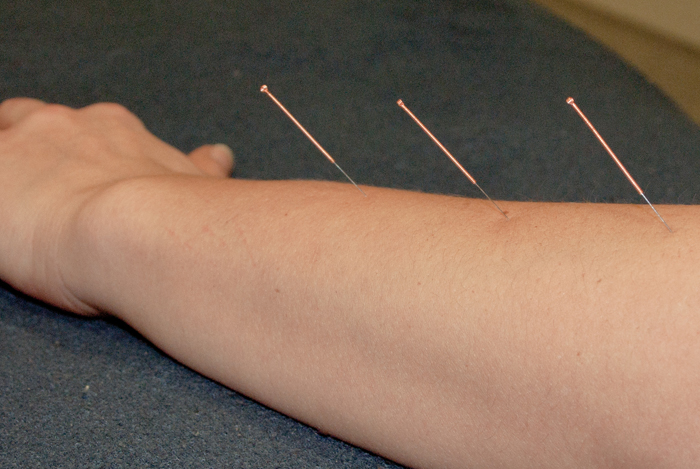The Ins and Outs of Dry Needling
You may have heard the term “dry needling” thrown around, or known someone who has tried it but never fully understood what it is or what is involved… Below I answer some of the commonly asked questions about this fantastic (yet often misunderstood) treatment technique.
Dry needling would have to be one of my all time favourite treatment techniques, both to use on clients and to also have done to myself. The thought of "needling" can be a bit daunting initially (after all who LIKES needles???) and some apprehension is 100% normal, especially if you've never had it done before. I know I felt this way the first time I had it done...now I'm addicted like many others! I put the addiction down to a couple of things-primarily the result but secondly the unique sensation you get from it...it's a feeling that no other treatment gives you and you can't totally explain until you've had it done.
What is it?
Dry needling involves inserting very fine acupuncture needles into soft tissue for the purpose of relieving pain or improving muscle function. It's called "dry needling" as no substance is injected, it is just purely the needle itself that does the work.

Is it the same as acupuncture?
No. Whilst similar needles are used in both treatments, the practice is different. Acupuncture is a form of traditional Chinese Medicine that involves the insertion of needles into meridian points of the body to affect the flow of ‘Qi’ (energy). While it can be used to treat musculoskeletal problems it's more commonly used to treat a whole range of internal physical and psychological conditions.
Dry needling, on the other hand, is based on anatomy and the neuromuscular and musculoskeletal systems and is mainly used to treat musculoskeletal problems. It often involves the needle being inserted into a trigger point to ‘release’ it and reduce any associated pain and dysfunction.

What are trigger points?
Trigger points are a bundle of muscles fibres within the muscle that have developed significant tension and pressure build up over time (often in overworked or incorrectly working muscles). They hurt to push on and will often refer pain to other areas. Not only can they cause pain, but can also cause the muscle to work incorrectly. Our postures, occupation, daily activities or sports we participate in will influence what trigger points we may develop, with some being more obvious and recurring than others!
Does dry needling hurt?
I'm not going to lie...it can be uncomfortable, but I wouldn't say it's painful. I like to say the feeling of dry needling is "good pain"- the type of inflicted pain you know is helping to alleviate the actual injury pain. The needle itself doesn't hurt to go in (remember it's super fine), the only "pain" that may be felt is from the penetration or stimulation of the trigger point. When the needle hits the trigger point it stimulates it which can cause the muscle to twitch and may feel like a deep ache or throb in the area of the needle or around the muscle's referral pattern. This slightly uncomfortable sensation only lasts for a few seconds, after that you wouldn't even know the needle's there! It's this bizarre sensation that clients end up enjoying because they feel like the needle is really hitting the spot!
What conditions is it useful for?
It can be used as a treatment technique for many musculoskeletal injuries or conditions all over the body. I most commonly use it in cases where the trigger points appear to be a major source of the pain eg. in cases where there is a constant dull ache in the area or in the referral pattern of the trigger point. It's also a great treatment to combine with massage in cases where significant muscle tension and pressure are present. Some of the most commonly and effectively treated conditions include (but are definitely not limited to):
- hip pain
- lower back pain
- rotator cuff conditions
- tennis elbow
- headaches


I carry acupuncture needles with me to all consults and will discuss the option of incorporating dry needling into your treatments if I think it will be beneficial (remember you have the final say and are always allowed to say no!). Please feel free to contact me directly on my mobile or via email if you have any further questions regarding dry needling or to find out if it’s suitable for you! Book an appointment online today to give it a go!
Have a great day!
Emily
